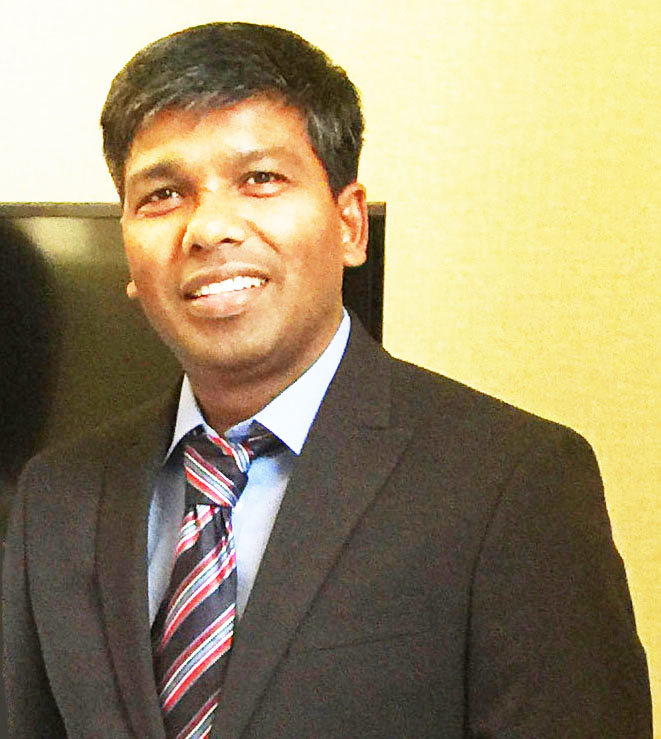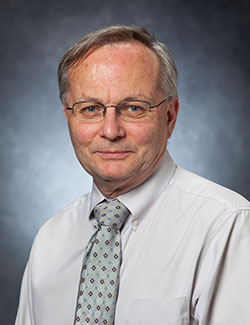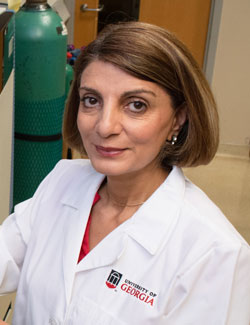Ajaya Biswal
Research Interests:
Plants and, more specifically, their cell walls, are becoming increasingly important as a renewable source for biofuels and bioproducts. Lignocellulosic biomass is the most abundant renewable resource on the Earth. As fossil fuel reserves diminish, the demand for gasoline and biofuels is increasing substantially. But the major challenge with corn-based biofuel is its sustainability. Lignocellulosic biomass is available in perennial bioenergy crops such as Populus and switchgrass. A critical barrier in developing a sustainable biofuel industry is that lignocellulosic biomass is recalcitrant to microbial access to the plant cell wall polysaccharides. Therefore, my current research focuses on an efficient way to enable depolymerization of plant cell wall polysaccharides into fermentable hexose and pentose sugars through genetic, enzymatic and/or chemical improvement of cellulosic ethanol technologies to yield next-generation biofuels, coproduction of novel biopolymers, commodity chemicals, and biomaterials.
Parastoo Azadi
Short Biography:
Dr. Azadi received her B.Sc. in Chemistry in 1987 from University of North London, UK and her Ph.D. degree in biochemistry in 1991 from Imperial College of Science and Technology, University of London, studying structural characterization of carbohydrates and glycoproteins by mass spectrometry under the supervision of Profs. A. Dell and H.R. Morris.
In 1990 through to 1994 she was the senior scientist and the study director at M-Scan limited, an Analytical Mass Spectrometry Consultancy in UK where she was responsible for complete structural characterization of native and recombinant proteins and glycoproteins using mass spectrometry as a service to the pharmaceutical industry.
In 1994 she joined the Complex Carbohydrate Research Center as a postdoctoral fellow and studied the effect of the enzymes endohyrolase and endolyase on rhamnogalacturonan I, and characterization of the fragments produced by these enzymes by ESI-MS and ESIMS/MS. In 1996 she became the Associate Technical Director of plant and microbial Analytical Services at the Complex Carbohydrate Research Center where she was responsible for plant and microbial service program where polysaccharides and lipopolysaccharides were analyzed for other institutes.
Since 2001, Dr. Azadi has been the Technical Director of Analytical Service and Training at the Complex Carbohydrate Research Center. As the Technical Director, the she oversees and manages all analytical services and training conducted at the CCRC, which are supported by three federal resource centers of excellence that CCRC has been awarded: The Department of Energy-funded Center for Plant and Microbial Complex Carbohydrates, the National Institutes of Health Resources Center for Integrated Glycotechnology, and the National Institutes of Health for Biomedical Glycomics. The analytical service program offers two main areas of service: standard analyses and contract analyses. The samples submitted for these types of analyses come from academic, government, non-profit organizations and private companies, throughout the United States and internationally.
Dr. Azadi works closely with the research scientists in industry on developing carbohydrate based drugs and the need for out-sourcing prior to phase I and phase II clinical trials.
Her laboratory also conducts research in areas of structural characterization of plant, bacterial and animal polysaccharides, glycoproteins and glycolipids using MS and NMR techniques.
Research Interests:
Structural analysis of oligosaccharides, glycoproteins, polysaccharides and glycolipids by mass spectrometry.




